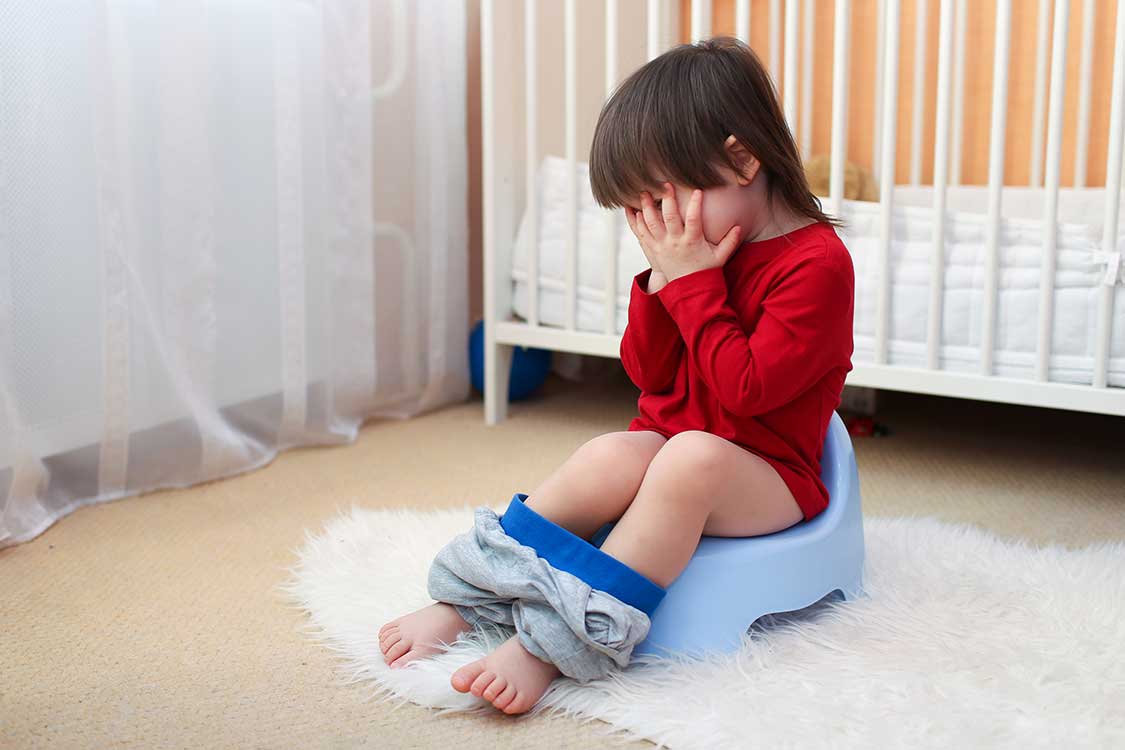Diarrhea in children
Overview | Possible Causes | Care and Treatment | HOME REMEDies | When to Call the Doctor | References

Overview
Diarrhea is when stools (bowel movements) are loose and watery. Your child may also need to go to the bathroom more often.
Diarrhea is a common problem. It may last 1 or 2 days and go away on its own. If diarrhea lasts more than 2 days, your child may have a more serious problem.
Diarrhea may be either:
- Short-term (acute). Diarrhea that lasts 1 or 2 days and goes away. This may be caused by food or water that was contaminated by bacteria (bacterial infection). Or it may happen if your child gets sick from a virus.
- Long-term (chronic). Diarrhea that lasts for a few weeks. This may be caused by another health problem such as irritable bowel syndrome. It can also be caused by an intestinal disease. This includes ulcerative colitis, Crohn’s disease, or celiac disease. Giardia may also cause chronic diarrhea.
Possible Causes
Diarrhea may be caused by many things, including:
- Bacterial infection
- Viral infection
- Trouble digesting certain things (food intolerance)
- An immune system response to certain foods (food allergy)
- Parasites that enter the body through food or water
- Reaction to medicines
- An intestinal disease, such as inflammatory bowel disease
- A problem with how the stomach and bowels work (functional bowel disorder), such as irritable bowel syndrome
- Surgery on the stomach or gallbladder
Children who visit some foreign countries are at risk for traveler's diarrhea. This is caused by having food or water that is not safe because of bacteria, viruses, or parasites.
Severe diarrhea may mean a child has a serious disease. Talk with your child's healthcare provider if symptoms don’t go away. Also talk with the provider if symptoms stop your child from doing daily activities. It may be hard to find out what is causing your child’s diarrhea.
Care & Treatment
Treatment will depend on your child’s symptoms, age, and general health. It will also depend on how severe the condition is.
Dehydration is the major concern with diarrhea. In most cases, treatment includes replacing lost fluids. Antibiotics may be prescribed when bacterial infections are the cause.
Home Remedies
Children should drink lots of fluids. This helps replace the lost body fluids. If your child is dehydrated, be sure to:
- Offer drinks called glucose-electrolyte solutions. These fluids have the right balance of water, sugar, and salts. Some are available as popsicles.
- Avoid juice or soda. They may make diarrhea worse.
- Not give plain water to your baby
- Not give too much plain water to kids of any age. It can be dangerous.
- Keep breastfeeding your baby. Breastfed babies often have less diarrhea.
- Keep feeding your baby formula, if you were already doing so.
When to Call the Doctor
Call your child's healthcare provider if your child is less than 6 months old or has any of the following symptoms:
- Belly pain
- Blood in the stool
- Frequent vomiting
- Doesn’t want to drink liquids
- High fever
- Dry, sticky mouth
- Weight loss
- Urinates less frequently
- Frequent diarrhea
- Extreme thirst
- No tears when crying
- Sunken soft spot (fontanelle) on baby’s head
To book online consultation to meet our expert doctor click on the link below





































































































